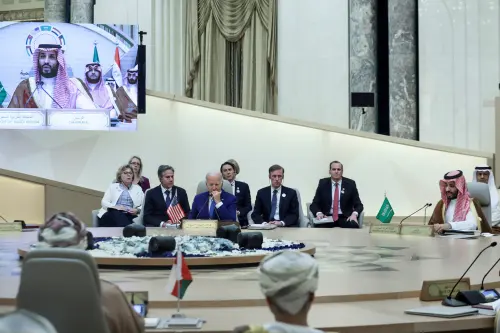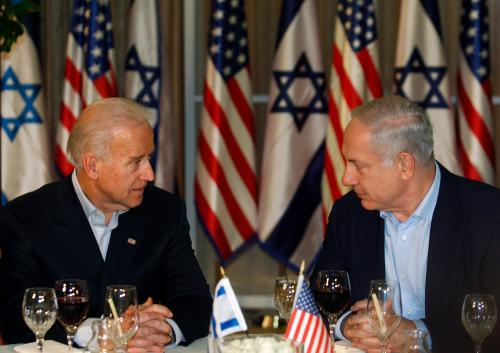Content from the Brookings Doha Center is now archived. In September 2021, after 14 years of impactful partnership, Brookings and the Brookings Doha Center announced that they were ending their affiliation. The Brookings Doha Center is now the Middle East Council on Global Affairs, a separate public policy institution based in Qatar.
UAE hands control of Aden over to Saudi Arabia
The United Arab Emirates (UAE) said on October 30 that its troops had left Yemen’s southern port of Aden and returned home, handing over control to Saudi Arabia, which is leading an Arab military coalition engaged in Yemen. The UAE, which had already in June scaled down its military presence in Yemen, would continue fighting “terrorist organizations” in southern provinces and other areas, the General Command of the Armed Forces said in a statement carried on state news agency WAM. Sources had told Reuters that Emirati forces started pulling out from Aden earlier this month in a move seen as paving the way for a deal to end a power struggle between Yemen’s Saudi-backed government and southern separatists supported by the UAE.
Saudi Arabia signs agreements worth $15 billion at investment conferencE
Saudi Arabia has signed 23 agreements worth $15 billion at its annual Future Investment Initiative conference, the Saudi Arabian General Investment Authority (SAGIA) said in a statement on October 29. Agreements include a $120 million investment deal between SAGIA and BRF Brazil Foods and a $700 million investment deal between SAGIA and Modular Middle East, both aimed at developing operations within Saudi Arabia.
Saudi Arabia, Qatar, and UAE loosen various restrictionS
Saudi Arabia has lifted some restrictions on women traveling in the ultraconservative Muslim kingdom, its tourism authority said on October 6, with new guidelines allowing women to rent hotel rooms without a male guardian’s presence, and foreign men and women to share a room without proof of marriage. Meanwhile, Qatar’s government said on October 17 it had adopted a new minimum wage law and would scrap mandatory exit visas for all workers, part of a broad labor reform program ahead of its hosting of the 2022 World Cup. Dubai has loosened its liquor laws to allow tourists to purchase alcohol in state-controlled stores, previously only accessible to license-holding residents, as the UAE saw the first drop in alcohol sales by volume in a decade.
UAE lifts Lebanon travel ban, Kuwait issues travel warning
The UAE lifted a ban on its citizens visiting Lebanon on October 7 as the Beirut government sought UAE help in steering the heavily indebted economy out of deep crisis. However, Kuwait’s Embassy in Lebanon on October 18 asked citizens wishing to travel to Lebanon to wait because of the current protests and unrest. “The embassy also calls on citizens currently in Lebanon to take utmost care and stay away from crowds and demonstrations,” the Embassy said in a tweet.
Saudi king names new foreign minister
Saudi Arabia’s King Salman has named a new foreign minister for the kingdom amid a series of royal orders. On October 23, the king named Prince Faisal bin Farhan as foreign minister, replacing Ibrahim al-Assaf, who had served for less than a year.
Kuwaiti emir opens parliament following hospitalizatioN
Kuwait’s Emir Sheikh Sabah al-Ahmad al-Sabah opened the country’s parliament on October 29 with a call to fellow Gulf Arab states to end a row that has shattered regional unity, in his first public address since being hospitalized last month in the United States. “It is neither acceptable nor tolerable for the dispute between our brothers in the countries of the Gulf Cooperation Council to continue,” he said, standing to address lawmakers from a podium in a speech at the annual opening of Kuwait’s National Assembly.


Commentary
GCC News Roundup: UAE hands control of Aden over to Saudi Arabia, Saudi Arabia signs investment agreements worth $15 billion (October 1-31)
November 4, 2019